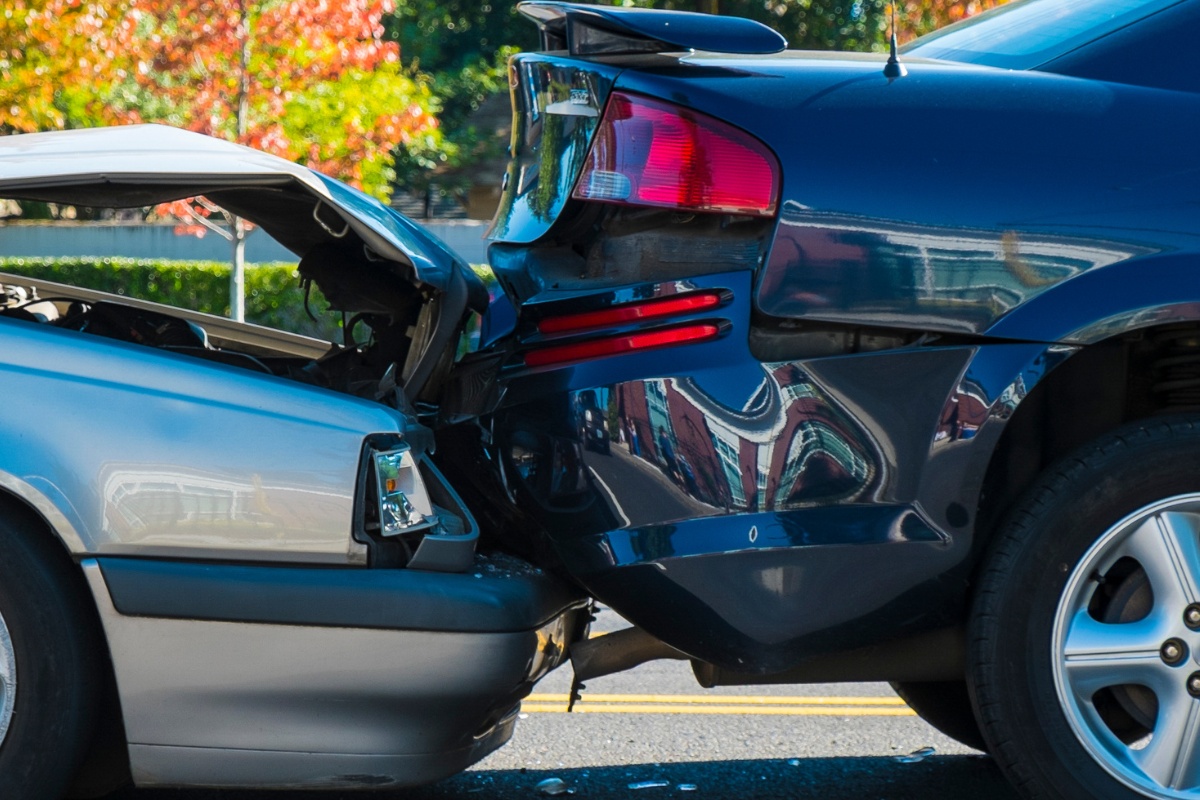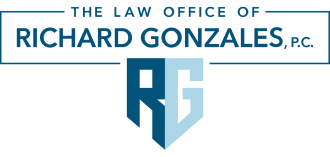
Being rear-ended can leave you in severe pain, dealing with a stack of bills, and unable to work. Victims are also left with the sense of injustice that comes from knowing that the crash happened due to the other driver’s negligent or aggressive behavior. At The Law Office of Richard Gonzales, P.C., we want you to know that you have rights, and we’re prepared to do everything we can to enforce them. Let an experienced Rio Grande Valley car accident lawyer with our firm fight to hold the at-fault driver accountable for what they did and demand they compensate you for what you suffered.
We have a proven track record helping injured Texans recover fair compensation and have taken on some of the most powerful auto insurance companies in the country. We never back down from a fight, and we’re ready to do whatever it takes to help you move forward with dignity. Contact us today for a free consultation to learn more about what we can do for you.
What Happens in a Rear-End Collision?
A rear-end collision occurs when one vehicle crashes into the back of another vehicle while traveling on the same roadway. These car accidents usually happen when the lead vehicle brakes or slows down unexpectedly, and the following vehicle fails to decelerate in time. The force of impact then rams the lead vehicle forward while the trailing vehicle’s front end crumples from the crash.
Even relatively minor rear-end crashes at low speeds can cause surprisingly severe injuries due to the physics of the impact and human vulnerability. When a vehicle suddenly decelerates from the collision, unrestrained occupants will continue moving forward at the vehicle’s original speed until something stops them. This can lead to a violent whipping motion that strains the neck and back as occupants are hurled forward into seat belts or airbags upon impact.
What to Do After a Rear-End Collision
Being involved in a rear-end collision can stir up many emotions, such as shock, dismay, and anger. While it is natural to feel upset, you’ll want to maintain the presence of mind necessary to protect your health and your claim. In the days and weeks after an accident, you can optimize your recovery by taking the following steps:
- Follow your doctor’s instructions carefully to stay on track in your recovery process. If you ignore your doctor’s orders, the insurance company might claim that you failed to take steps to mitigate harm and refuse to pay your claim.
- Gather documents proving how much income you have lost due to your injuries. These include tax forms, pay slips, bank statements, or letters from your employer.
- Keep track of all medical records and bills. These documents demonstrate the nature and extent of your injuries and the cost of your medical assessments and treatment.
- Don’t post about the accident or your injuries on social media. The at-fault party’s insurer might see your posts and find clever ways to use them against you.
- Do not accept the insurance adjuster’s initial settlement. This is generally a lowball offer they hope you will take before you recognize the total value of your losses. Once you accept an offer, you lose the right to seek further compensation in related injury claims.
- Contact a rear-end collision lawyer who can investigate the accident, identify all liable parties, calculate your losses, and negotiate forcefully with the insurance company. Your attorney can also file a lawsuit to seek compensation at trial if necessary.
Causes of Rear-End Car Accidents
There are a few common reasons why rear-end motor vehicle accidents occur:
- Distracted driving – Eating, texting, talking on the phone, and other distractions can take a driver’s eyes off the road ahead. This reduces the reaction time drivers have to brake in the event of a hazard.
- Impaired driving – Being under the influence of alcohol or drugs slows reflexes and decision-making abilities, making it difficult to respond quickly to a lead car braking.
- Excessive speed – High speeds give drivers of trailing vehicles less time to react and require longer stopping distances, making rear-end car accidents more likely.
- Slick roads – Rain, snow, and ice reduce tire grip on the road, increasing the braking distance necessary to slow down and increasing the risk of rear-end crashes.
- Mechanical failure – If a vehicle has faulty brakes, a stalled engine, a blowout, or another mechanical failure, it can abruptly lose the ability to slow down or stop.
An attorney with experience handling rear-end car accident claims can investigate to determine which factors played a role in your collision.
Who Is at Fault in a Rear-End Collision?
The vast majority of rear-end car accidents are legally considered the fault of the trailing driver. This is because all trailing drivers have a “duty of care” to maintain safe control of their vehicles and avoid crashing into the cars ahead. Texas law sees the rear driver’s failure to stop in time as not living up to this duty of care.
However, the rear driver is not always at fault in a rear-end accident. Sometimes, the leading driver is responsible if, for example, they cut too closely in front of another driver or brake hard for no apparent reason in the middle of traffic. Your attorney will examine police reports, vehicle damage, road conditions, and other evidence to determine who was at fault and seek to hold them accountable.
Injuries Resulting from Rear-End Car Accidents
Even low-speed rear impacts can inflict significant injuries to occupants of the struck vehicle. Common injuries from rear-end car accidents include:
- Whiplash – Soft tissue strain or tears in the neck from violent back-and-forth movements
- Herniated discs – Ruptured or bulging discs in the spine due to intense impact forces
- Spinal cord injuries and fractures – Compression fractures to vertebrae in the neck or back
- Traumatic brain injuries – Injuries that affect the brain and disrupt its normal functioning
- Broken bones – Fractures due to violent impacts with vehicle interiors or other hard surfaces
- Lacerations – Cuts from windshields, mirrors, debris, or airbag deployments
- Internal injuries – Trauma to internal organs due to blunt-force impacts during the crash
These car accident injuries can range from minor scrapes to catastrophic harm that results in permanent disability or death. Car accident victims should seek a prompt diagnosis and begin treatment immediately.
Types of Compensation Available After Rear-End Collisions
If you suffer injuries in a rear-end accident in the Rio Grande Valley, you could be entitled to compensation for the following losses by filing a car accident claim.
Medical Expenses
You are entitled to recoup money for all past and future medical expenses resulting from a serious car accident. These might include:
- Emergency room visits
- Ambulance rides
- Diagnostic tests
- Scans such as X-rays and MRIs
- Doctor’s appointments
- Specialist consultations
- Surgical procedures
- Assistive devices such as braces and crutches
- Prescription and over-the-counter medications
Lost Income
If your car accident injuries temporarily prevent you from returning to work, you can claim compensation for your lost income. You could also claim compensation for work you have missed while attending medical appointments. Your claim can include hourly wages, salary, tips, commissions, sick leave, and paid time off.
Reduced Earning Capacity
Some injuries result in long-term disabilities that prevent a person from returning to their previous job. If you must take a job that pays you less than before, your car accident claim can make up the difference between your current and prior earnings. Your car accident lawyer can work with a financial specialist or economist to calculate this shortfall and demand fair compensation accordingly.
Pain and Suffering
In addition to the financial consequences of the accident, you could be eligible to recover compensation for the physical pain and psychological suffering you have endured due to your serious injuries. This can include compensation for:
- Depression
- Anxiety
- PTSD
- Phobias
- Chronic pain
Loss of Enjoyment of Life
Many accident victims never return to their previous quality of life. This could be due to their inability to participate in their favorite activities, loss of bodily functions or cognitive capacity, or a lack of the sense of purpose they used to have. A successful claim can compensate you for these intangible losses. An experienced Texas rear-end car accident lawyer can determine how much money is available in your case and demand the full compensation you are due.
Deadline to File a Car Accident Lawsuit in Texas
The Texas statute of limitations for car accidents requires injured individuals to file a lawsuit within two years of the accident date. You could be barred from recovering the compensation you deserve if you do not meet this deadline. As such, it is imperative to work with a knowledgeable Texas rear-end car accident lawyer who can ensure that you file promptly to protect your claim.
Furthermore, enlisting the services of a legal professional as soon as possible has other advantages. Taking prompt action will allow your attorney to speak with eyewitnesses before their memories fade and gather crucial evidence before it disappears. The sooner you hire an experienced car accident attorney, the more time they have to devote to your case and push for maximum compensation.
Contact Our Texas Rear-End Collision Attorneys
The compassionate Rio Grande Valley rear-end collision lawyers at The Law Office of Richard Gonzales, P.C. understand how challenging life can feel after a car crash. We’ll work hard to get you back on your feet and hold negligent parties accountable for their wrongdoing. Contact our team for a free consultation to learn more about your legal options, and let us get started on your case immediately.


